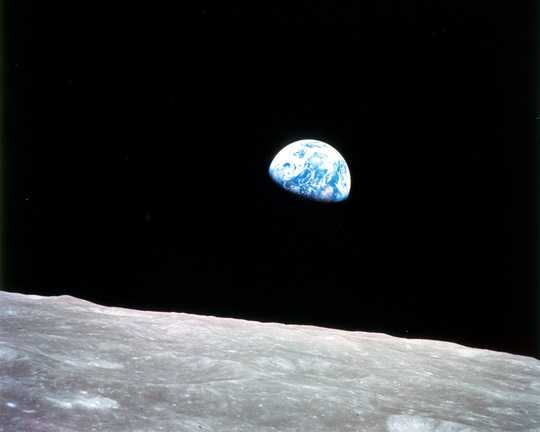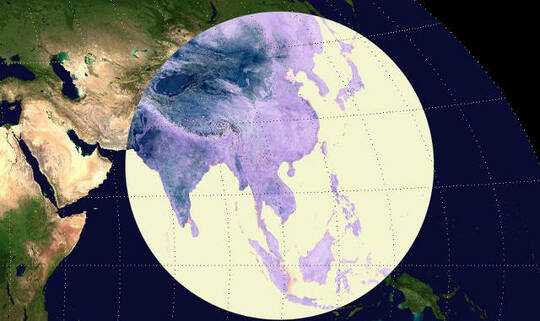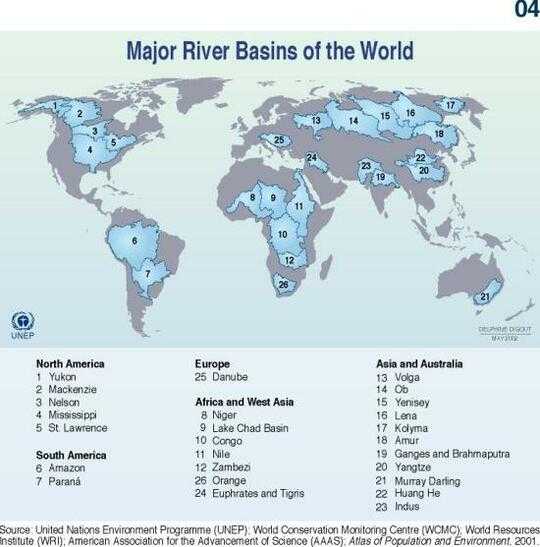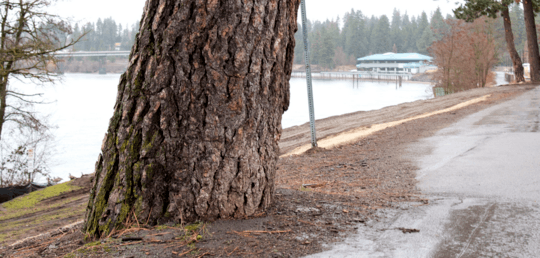Foreword: This may duck the spirit of the question for the literalist interpretation.
Thinking Outside The Box

If I was a '35er, the very first thing I would do is hop on my smartphone and start hailing the ISS in every way I can manage. At their twitter, at their Insta, if I can find a HAM radio I'll darn well hit em there. I'll try the astronauts personal twitter, email, linkedIn, whatever I can possibly find.
I believe this will be a doable effort. Even if there are bots creating bogons, I believe the only person tweeting, emailing, DMing, Hamming, about how they've lost contact with Houston will eventually make contact. The ISS has (very slow) internet access and I believe it is a much better option than HAM for making and maintaining the contact we will need for this next step.
Even if you can't maintain contact over the short longer term, you have made contact with a very important asset. The astronauts on the ISS are the only humans guaranteed to be alive at this juncture. Any attempt to quickly (day of, day after, while internet survives) pick out and contact another survivor seems doomed to fail in my opinion.
The Plan
The Astronauts are an incredible asset in your plan to save the human race (lets face it, without your action, there ain't no chance of more babies). They will allow you to greatly increase your communication output in the crucial period before the global communication network shatters. You email every person in your email contact list. You message everyone you have on facebook or any other social network.
MAJOR KEY ALERT: you try to find the address of your closest HAM radio club or organization. Dig for details of either the first member you can find (time-sensitive internet access) or the closest member to your location (transit time contingent). Download a copy of the two most popular Ham radio operation manuals you can find on E-Book (you can always get one at a library later, believe me you'll have the time for it).
Meanwhile, have the ISS do their part. They will have a more traditional array of communications tools alongside their slow internet. They are all exceptional people and bring a set of skills, knowledge, experience, and raw brainpower that you alone could never match. Follow their instructions if they seem reasonable and try to avoid wasting time communicating about their unavoidable long-term death.
Short Term Contingencies
Now, this first stage of the plan is contingent on a few things, luck first among them. Depending on the circumstances of the disappearance and your own personal situation, a car could crash, take down a line or generator or other sundry key part of the communication network linking you to the ISS. This is too terrible to contemplate so I'll not bother. Answers to this question seem to think otherwise have a set of 2-5 (ok maybe not five) days before the internet is pining for the fjords.
Back to the Plan
The time between when you make contact with your team and when you lose them over the internet is precious beyond simple explanation. I personally cannot imagine what brilliant things you could come up with, under extreme "motivation", with decades of their experience as soldiers, academics, or whatever. 232 extraordinary global citizens have spent time ex-terra at the ISS Hilton, so you could have more or less any combined skill set up there. What I suggest seems reasonable to me under these bounds.
You take control of the ISS personal astronaut social media accounts, the ISS social media accounts, the NASA social media accounts, and/or any other email-linkedin-weichat-VKontakte accounts you can. If anyone has the talent to hack or learn to hack quickly, take control of any and all social media, news, or simply popular webpages you can. Take into hand any further ISS-based communication equipment, and broadcast a looping screed of "Are you out there? We are still alive! us at !". If you can take control of printers, print your the address of your nearest town hall (to be left with a briefing cache) along with the above message.
You have cast the widest net possible in the shortest time possible. Await responses while brainstorming your next step over email with the spacers. Download a translation program and a set of dictionaries to a flash drive and use google translate while you still can.
If you get any responses, generically tell them to acquire a ham radio and a generator before proceeding. See if you can get them hooked up with the ISS if you can, to facilitate communication. If you can figure out a potential halfway-point for future meeting, hash that out.
My guess is that you don't see any response (you can cast a big net but earth is large as hell with balkanized communication for the most part), but you've given it your best. Either way, form a plan for continued (personal and species-level) survival. At some point you'll have to switch to a Ham Radio for (much reduced) ISS communication (which will end one day) and a library for research and planning purposes.
Going Forward
- Survive! If your person doesn't survive, nothing else matters (to you).
- Help others survive! Even if you can't reach them, assist them in any way you can. Keep in HM radio contact as often as possible, and pool your (foodgathering, medical, transportation) information, and socialize. It would be very easy to get discouraged or suffer from mental health issues in this scenario.
- Form a community of survivors. Travel to a centralized site with access to food, resources, and information. Choose a language (please god no English or Chinese), form a society, have kids. Choose a leader and stick to it because god knows you can't afford a civil war.
- Make your community safe. You'll have a Mayflower's worth of people, with no guarantee of carpenters nor doctors. Based on this chart and your ability to contact, preserve, and gather your fellow humans, you will have a very limited workforce with limited skills. Choose a safe (good weather and limited natural disasters) location and exploit existing structures and resources, like farms, orchards, quarries, etc.
- Preserve Knowledge and Progress. Form a religion to preserve knowledge, human rights, and provide for the people. To what extent you can, mold your society around reclaiming the mantle of humanity, reclaiming progress, and preserving the environment. This is your chance to change the course of human history. Even if in the future, regionalism and person ambition breaks your community into different groups, you can hope your church will tie them together culturally and diplomatically. I'm aiming for a mix between the state-within-all-states Early-Middle-Ages Catholic Church and Star Trek's Federation.
Acknowledgements
What I detailed above is by no means the most likely scenario. It is simply one scenario, and one far more positive than most of the answers so far in my opinion.





2
Comments are not for extended discussion; this conversation has been moved to chat.
– L.Dutch - Reinstate Monica – 2018-08-22T18:37:51.24315I don't have the maths for this, but could the ideal gas law could be used to answer this question ? 35 molecules of gas, in a container that represents the land area of earth ? – Criggie – 2018-08-22T19:37:28.047
8A few key questions:
39
There is a xkcd What If? on this : Lost Immortals. Unfortunately, only available in the book. But it asks "If two immortal people were placed on opposite sides of an uninhabited Earthlike planet, how long would it take them to find each other?" The easiest solution proposed that doesn't involve leaving a trail of markers (but does rely on both people being on the same continent and using the same strategy) is to walk the coast line until you encounter each other. If you make a full circle without seeing someone, flip a coin to decide whether to change direction.
– Anthony – 2018-08-22T22:42:11.003I give up. Where's the motivation to try hard enough to find somebody to get a reasonable search radius. – Joshua – 2018-08-23T01:31:03.907
Possible duplicate: https://worldbuilding.stackexchange.com/q/3752/44800
– Legisey – 2018-08-23T14:00:09.3901Is the internet still a thing that exists? Could one of them not look for online activity and find another person that way? – Pleiades – 2018-08-23T16:25:27.620
4@Legisey That question has 75,000 survivors, this question has 35. That's a very important difference. With 75,000 survivors, people would find each other rather quickly. – gerrit – 2018-08-23T17:08:23.253
7@Criggie - That assumes that they're just wandering around aimlessly rather than a) Heading for major landmarks and cities and b) Using radio signals to spread the word of their location to others who might be listening – Richard – 2018-08-23T21:12:45.227
1Just curious, why 35 people? – codah – 2018-08-24T06:24:40.893
1@Anthony That "using the same strategy" part is quite problematic. – Mast – 2018-08-24T10:03:51.337
They all probably start their own version of The Guilty Remnants, so even if by some chance they meet someone else, insanity and/or death results. – Carl Witthoft – 2018-08-24T11:54:15.220
Do they have to actually meet each other or is simply satisfying the condition that one of them is aware that other people exist sufficient? If the latter, the fastest way is probably for one of them to fire up a jet airplane. The guy in the jet isn't necessarily going to see the person on the ground if they don't have a fire built or a light turned on, but the person on the ground will likely hear and/or see the jet or its contrail. – reirab – 2018-08-24T16:05:43.750
Do you want the people to find each other? – JPhi1618 – 2018-08-24T19:35:00.953
2It depends on what nuclear reactors do when left unattended. – Sentinel – 2018-08-25T07:23:46.647
@Sentinel - One assumes they'd melt down and spread radiation, but that would only contaminate a tiny proportion of the Earth's surface and add a microscopic amount of radiation to the atmosphere – Richard – 2018-08-25T11:19:41.327
1This depends on methods of communication. If internet still would be accessible for at least a few days it would take a few days to get aware of each other. And more to meet each other, depends on method of travel. – rus9384 – 2018-08-25T20:19:05.147
This reminds me of a thought experiment Paul Watzlawick came up with in one of his books: Two secret agents are in the same city and want to meet. But they have no communication channel to arrange a place and a time. So it comes down to the market place at midnight or noon. – h0b0 – 2018-08-27T12:22:04.143
Wow. The accepted answer is exhaustive on distribution and chances to meet by walking all over the place, but doesn't take technology into consideration at all (the "making the world smaller" phrase comes to mind) and gives you bleak chances. I upvoted @Securiger 's answer. – Nahshon paz – 2018-08-28T07:57:30.667
I think the main misconception on all the answers so far is that all of these people actually intend to find the others. Since I don't know if there are any survivors and how many of them there are, I must prepare for the worst and assume mad-max style lawless gangs roaming around. The best strategy to do that would be to find a good stash(es?) of resources that will stay usable for the longest possible time, and then do my best to keep them and myself hidden. Chances of accidentally finding anyone quickly approach 0. Also, see the end of the https://what-if.xkcd.com/72/
– j_kubik – 2018-08-28T21:11:09.463Even if all of them find eachother, they would probably need some serious polygamy to have a chance of being a genetically viable population. – Mark – 2018-08-29T13:33:11.453
It depends on how much those people want to meet each over. Some people might be pretty fine alone. It also depends on the level of intellect of those remaining. The age - some of them could be vulnerable. Most probably, out of 35, only a few will remain alive and will want to meet and will know how to do that. – ACV – 2018-08-31T13:21:58.930
Note that approximately 9 of them are younger than 15, and have no means of travel other than their legs. – PotatoLatte – 2018-09-22T02:47:42.650